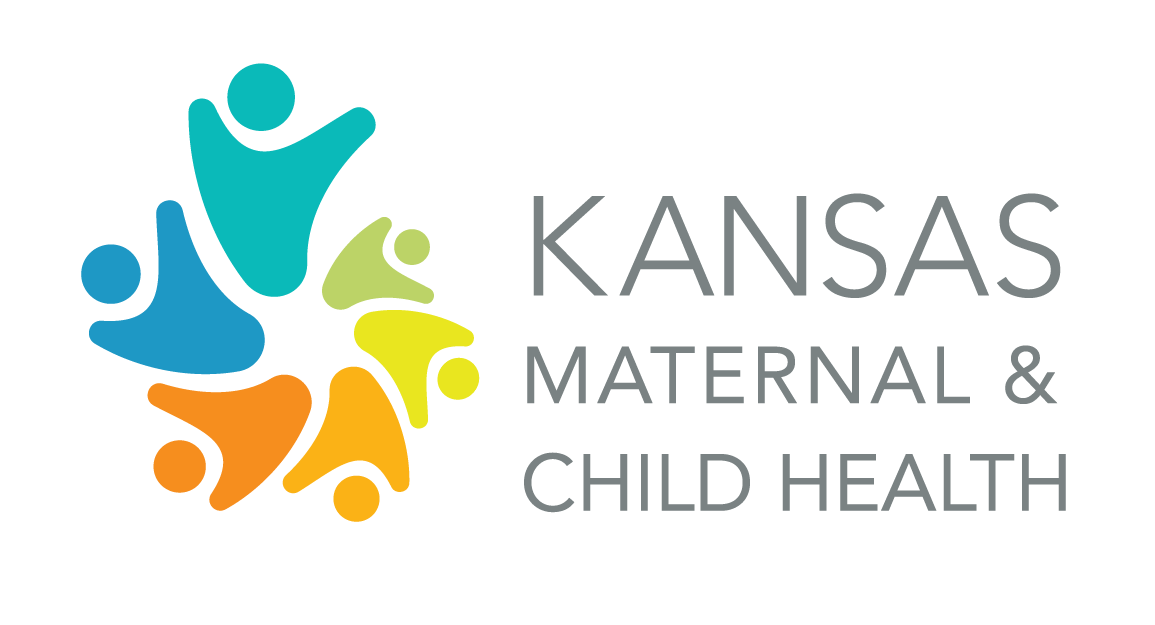July is Group B Streptococcus Awareness Month
Group B streptococcus (GBS) is a type of bacteria that many people carry normally in their body. Most of the time the bacteria do not cause any symptoms or make people feel sick. About 1 in 4 pregnant people carry GBS bacteria. Undiagnosed or left untreated, GBS in pregnancy can be dangerous because it can be passed to baby during birth and cause serious illness. In fact, GBS is the leading cause of newborn infection.
KDHE has designed a social media toolkit to raise awarness during the month of July. Post the graphics on your social media platforms and feel free to customize the messages to include any resources, support services, treatment providers, and suicide prevention or mental health training opportunities in your community!
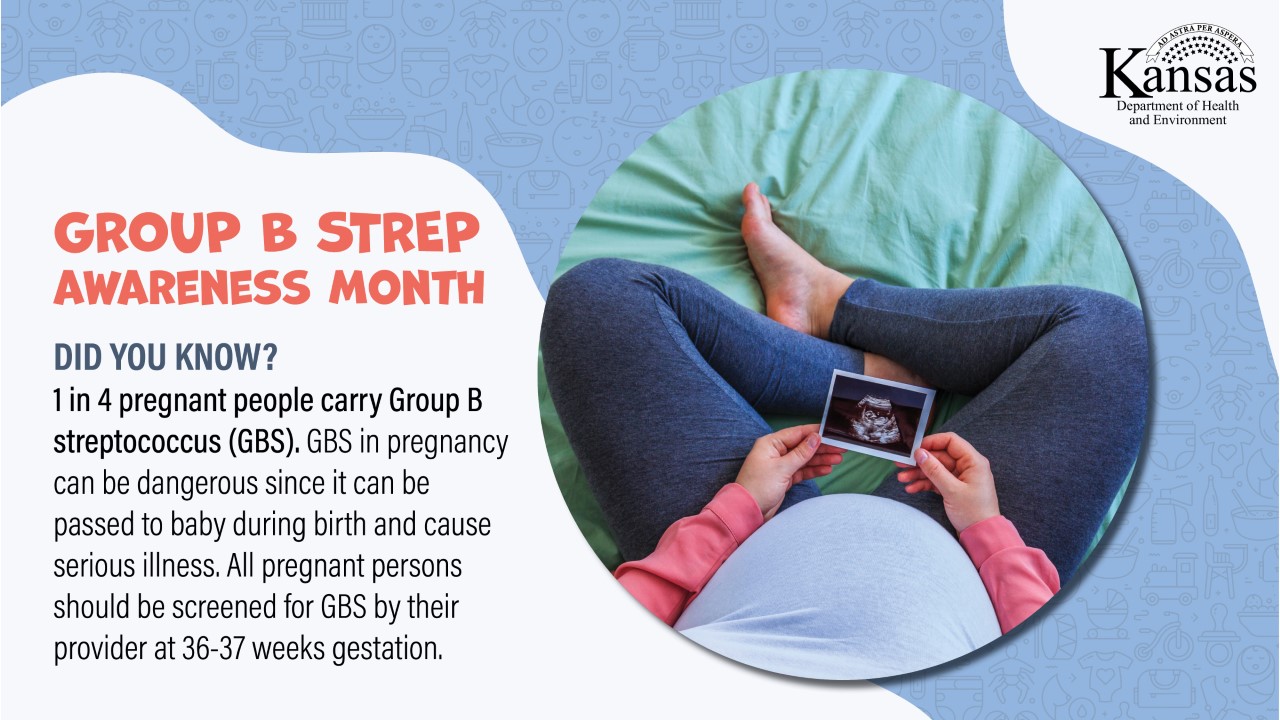
Caption: 1 in 4 pregnant people carry a naturally occurring bacteria called Group B streptococcus (GBS).
Undiagnosed or left untreated, GBS in pregnancy can be dangerous since it can be passed to baby during birth and cause serious illness. Attending all prenatal appointments is incredibly important. All pregnant persons should be screened for GBS by their provider at 36-37 weeks gestation.
For more information and resources for Group B streptococcus Awareness Month, go to kansasmch.org/GroupBstreptococcusAwareness
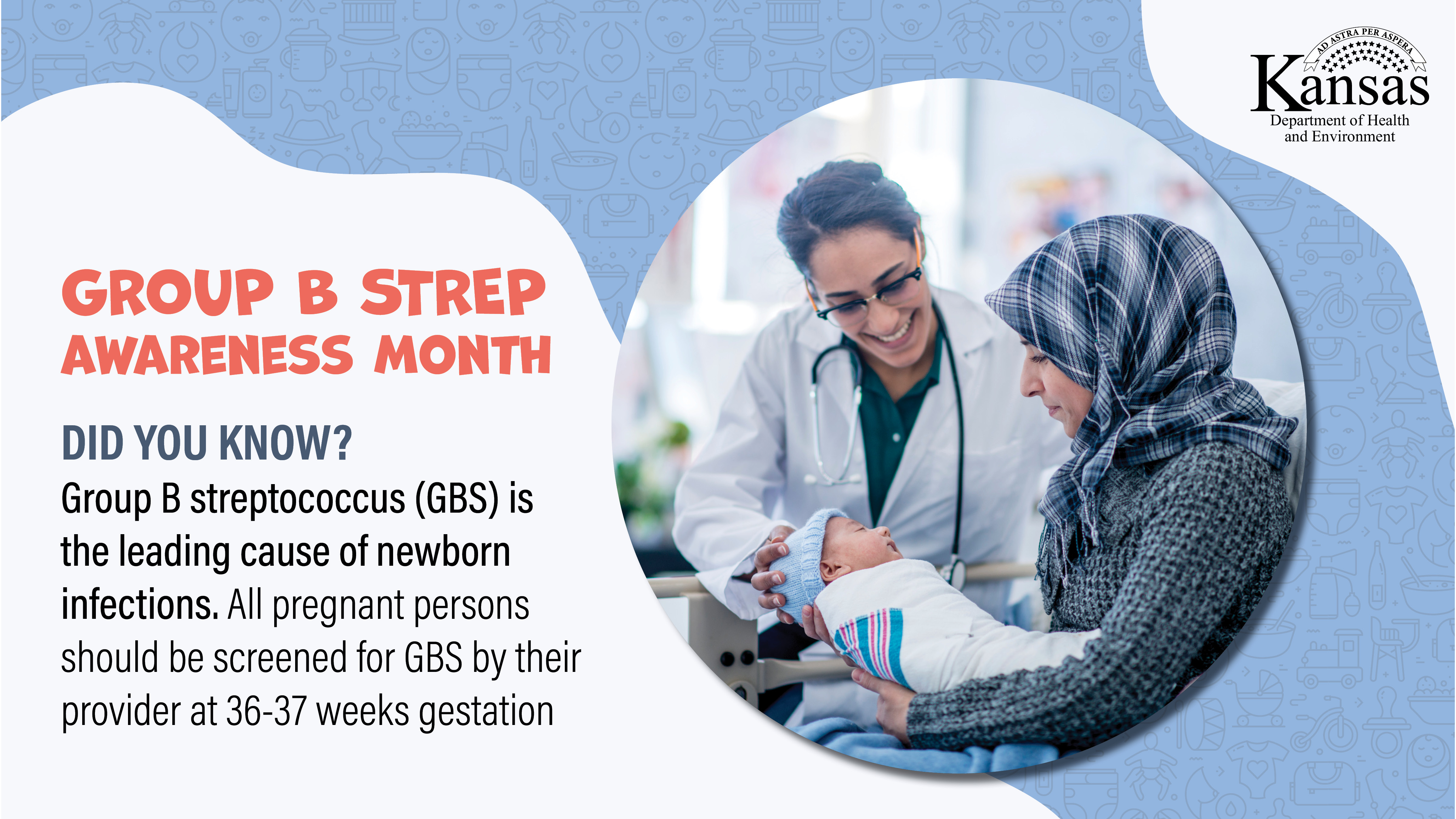
Caption: Group B streptococcus (GBS) is the leading cause of newborn infections. Newborns exposed to GBS during labor and delivery can develop serious health issues such as meningitis, pneumonia, sepsis, and in some cases, death. Attending all prenatal appointments is very important. All pregnant persons should be screened for GBS by their provider at 36-37 weeks gestation. Those who are GBS positive will receive IV antibiotics during labor and delivery to prevent GBS infection of baby
For more information and resources for Group B streptococcus Awareness Month, go to kansasmch.org/GroupBstreptococcusAwareness
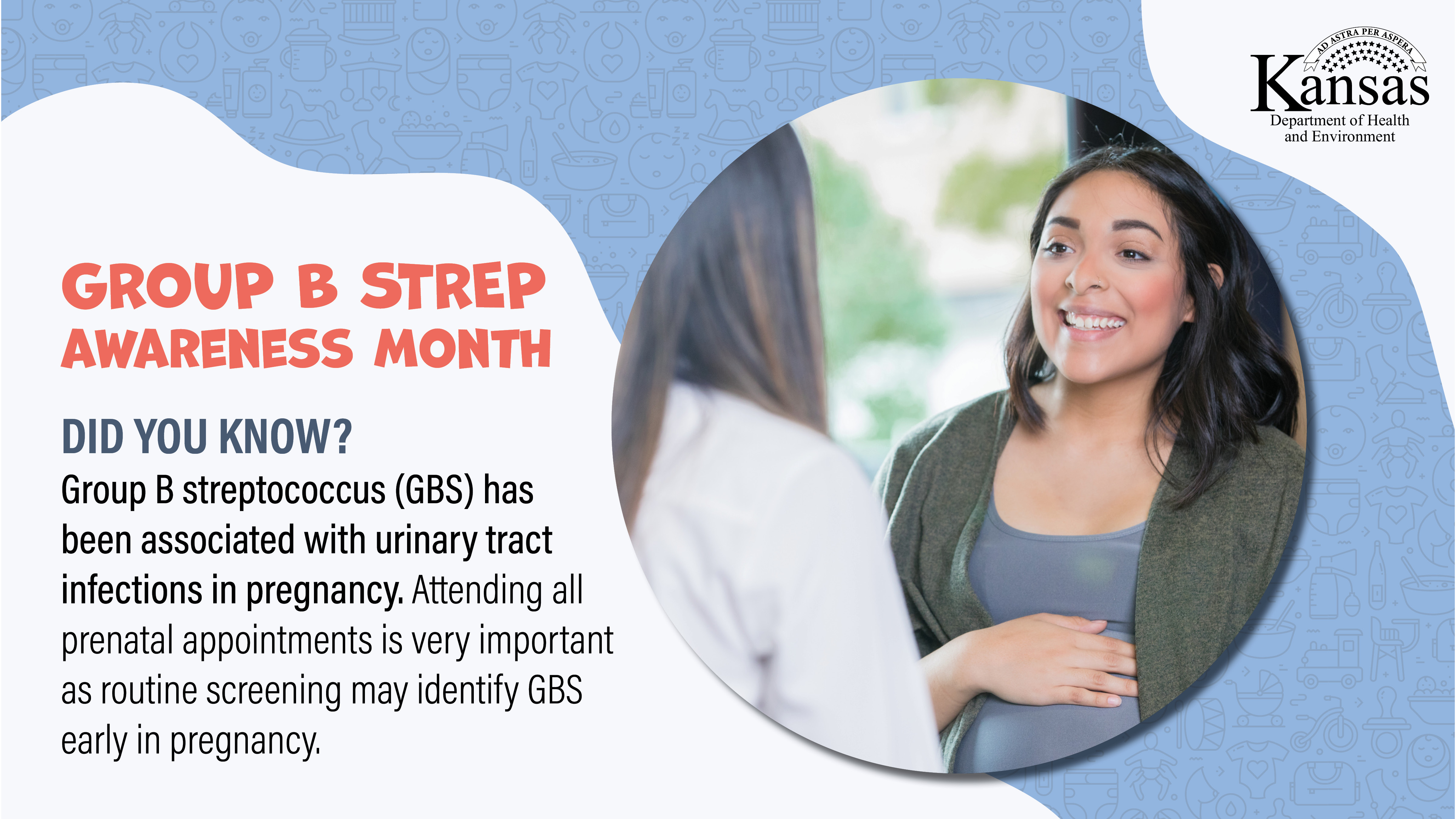
Caption: Group B streptococcus (GBS), a normally occurring bacteria, has been associated with urinary tract infections in pregnancy. Urinary tract infections caused by GBS may indicate unusually high levels of GBS bacteria in the body and the need for antibiotics during labor and delivery. Attending all prenatal appointments is very important as routine screening may identify GBS early in pregnancy
For more information and resources for Group B streptococcus Awareness Month, go to kansasmch.org/GroupBstreptococcusAwareness
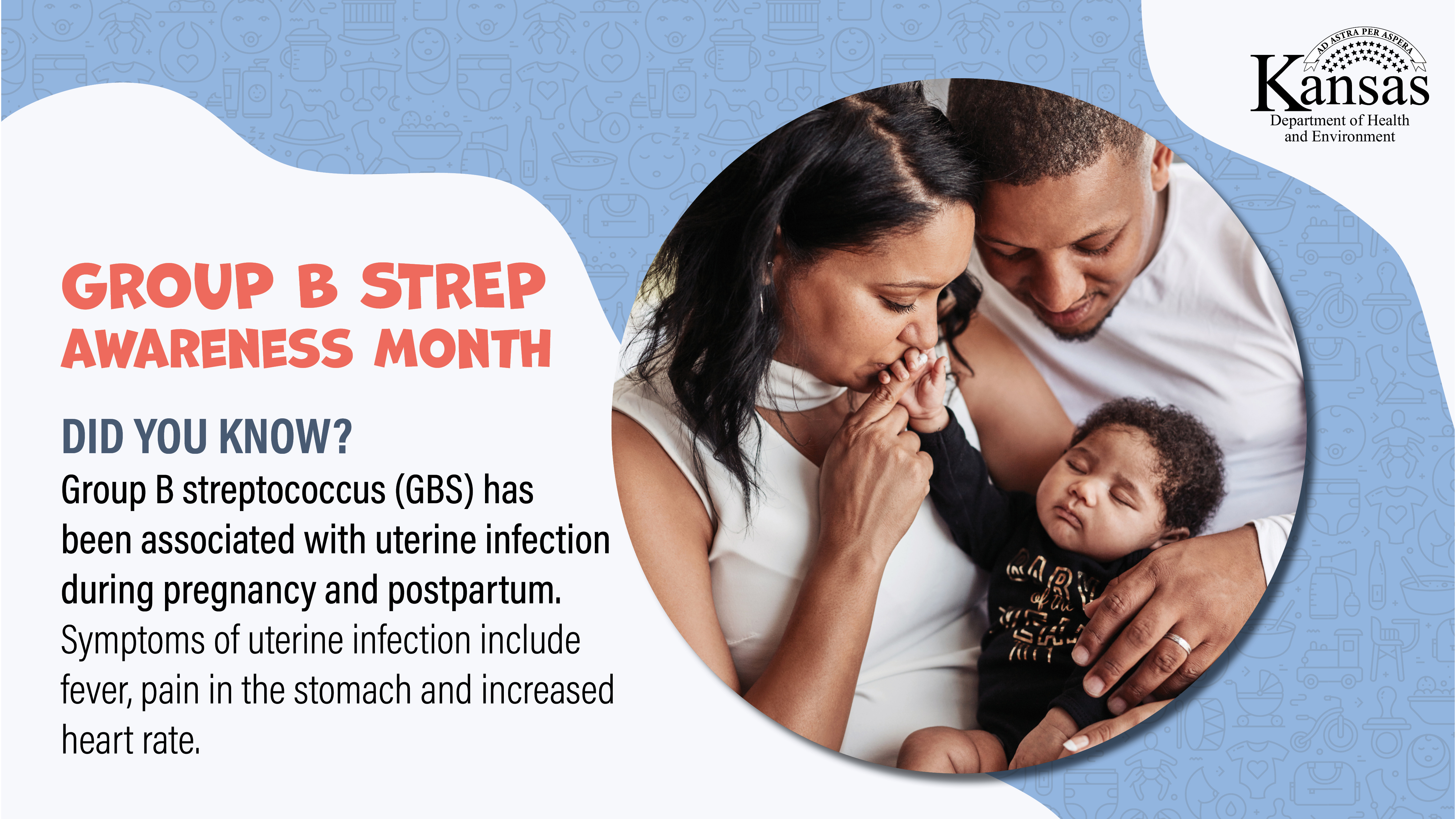
Caption: Group B streptococcus (GBS), a normally occurring bacteria, has been associated with uterine infection during pregnancy and postpartum. Symptoms of uterine infection include fever, pain in the stomach and increased heart rate. Without treatment, a uterine infection may increase the chance of preterm labor and still birth. Attending all prenatal appointments and sharing any concerning symptoms with a provider is very important.
For more information and resources for Group B streptococcus Awareness Month, go to kansasmch.org/GroupBstreptococcusAwareness

